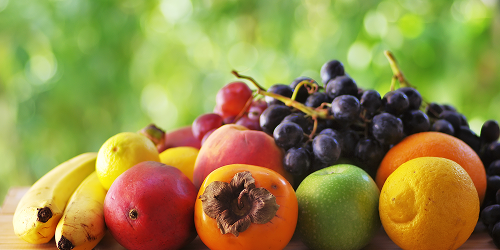5 Simple Fruit Desserts That Require No Baking

Beat the heat with these refreshing no-bake fruit desserts that highlight the natural sweetness seasonal produce
Smart grocery shopping and proper food storage are essential skills for maintaining a healthy lifestyle while managing your budget effectively. According to research, households can save up to 25% on their grocery bills by implementing proper shopping and storage techniques. In this article, we'll share five essential tips to help you shop smarter and keep your food fresh longer.
Why Smart Shopping and Storage Matter
Proper grocery shopping and food storage techniques are crucial for maintaining food quality, reducing waste, and saving money. Different food items have different storage requirements based on their nature, shelf life, and environmental factors.
Temperature and humidity control are critical factors in food preservation. Understanding these factors is key to optimizing food freshness and extending shelf life.
Tip 1: Plan Your Shopping List
Creating a well-organized shopping list is the foundation of smart grocery shopping. Here's what you need to know:
Essential Categories to Include
- Fresh Produce
- Dairy Products
- Meat & Seafood
- Pantry Items
- Frozen Foods
- Bakery Items
Shopping List Tips
- Check inventory first
- Plan meals ahead
- Check expiration dates
- Compare prices
- Look for deals
- Buy in season
Tip 2: Proper Food Storage
The way you store your groceries can significantly impact their shelf life. Here are some recommendations:
- Temperature control: Keep perishables at appropriate temperatures. Refrigerator should be at 40°F (4°C) or below.
- Humidity management: Use proper storage containers and maintain appropriate humidity levels for different foods.
- Organization: Keep your pantry and refrigerator organized to prevent food waste and spoilage.
- Air circulation: Ensure proper airflow in your refrigerator and pantry to maintain food quality.
Tip 3: Smart Shopping Strategies
Implementing smart shopping strategies can help you save money and reduce food waste. Shop during sales, use coupons, and buy in bulk when appropriate.
Tip 4: Understanding Food Labels
Reading and understanding food labels is essential for making informed purchasing decisions. Look for expiration dates, nutritional information, and ingredient lists.
Label Reading Guide
- Check expiration dates
- Review nutritional information
- Read ingredient lists
- Look for organic certifications
- Verify storage instructions
Understanding labels can help you make healthier choices and reduce food waste!
Tip 5: Meal Planning and Prep
Effective meal planning and preparation can help you make the most of your groceries. Here's how to maintain your food effectively:
Weekly Planning
Plan your meals for the week to avoid impulse purchases and reduce food waste.
Batch Cooking
Prepare meals in advance to save time and ensure you use all purchased ingredients.
Storage Solutions
Invest in quality storage containers to keep your food fresh longer.
Inventory Management
Keep track of what you have to avoid duplicate purchases and reduce waste.
Conclusion
Implementing these five tips can significantly improve your grocery shopping experience and food storage practices, helping you save money and reduce food waste. Remember that different foods have different storage needs, so taking the time to care for them properly will pay off with better quality and longer shelf life.
At FreshHarvest, we're committed to helping you make the most of your grocery shopping experience. By following these guidelines, you'll enjoy better food quality and longer-lasting groceries while minimizing waste and saving money.
What are your favorite grocery shopping and storage tips? Let us know in the comments below!
